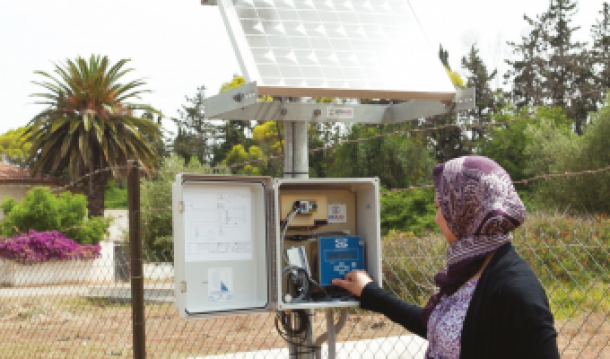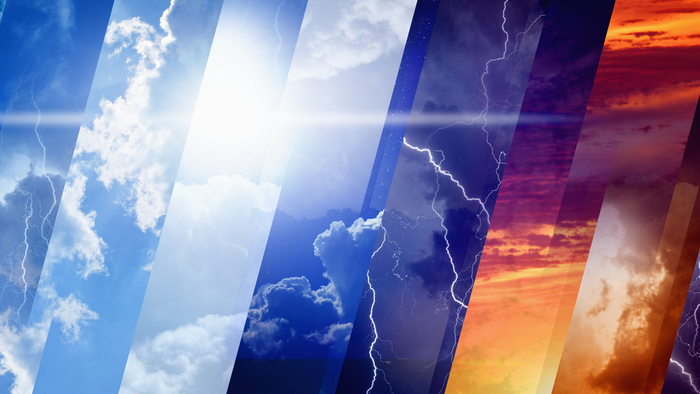Support grows for Systematic Observations Financing Facility

The World Meteorological Organization (WMO), the United Nations Development Program (UNDP) and by the United Nations Environment Program (UNEP) convened the third meeting of the forum of potential funders for the Systematic Observations Financing Facility (SOFF). Some 50 delegations representing potential bilateral, multilateral and philanthropic funders as well as observer organizations including the Least Developed Countries (LDCs) Group and the Alliance of Small Island States (AOSIS) and the members of the Alliance for Hydromet Development joined the meeting.
Strengthening weather and climate observations: A foundational global public good

The new edition of the ‘Financing the United Nations Development System’ report features the Systematic Observations Financing Facility (SOFF) as an innovative financing mechanism designed to provide a foundational global public good: basic weather and climate observations.
Alliance for Hydromet Development: Close the Gap

The international community has issued a rallying call for greater investments in weather forecasts, early warning systems, and climate services – known as hydromet – to boost climate change adaptation and resilience to extreme weather.
United Nations Secretary-General Antonio Guterres said the first Hydromet Gap report “tells us how far we need to go to ensure all people have access to accurate, timely weather and climate information.”
“But for accurate forecasts, we need reliable weather and climate data. Today, large gaps remain in basic weather data, particularly in Small Island Developing States and Least Developed Countries. These affect the quality of forecasts everywhere, particularly in the critical weeks and days when anticipatory actions are most needed,” said the UN Secretary-General.
Hydromet Investments save lives and make economic sense

First Hydromet Gap Report calls for scaled-up action
Geneva, 8 July 2021 (WMO) – An estimated 23,000 lives per year could be saved potential annual benefits of at least US$ 162 billion could be realized by improving weather forecasts, early warning systems, and climate information – known as hydromet, according to a new report.
The first Hydromet Gap Report, launched on 8 July, tells us how far we have to go to tap the benefits of effective weather and climate services. It presents the challenges of the complex global and local undertaking required and proposes priority actions to scale up support to developing countries to strengthen their capacity
Secretary-General’s video remarks at launch of the First Hydromet Gap Report
I am pleased to welcome the first Hydromet Gap report.
I thank the 13 member organizations of the Alliance for Hydromet Development for highlighting the urgent need to close the capacity gap on high-quality weather forecasts, early warning systems and climate information. This is essential for building resilience in the face of climate change. Frightening heatwaves and other climate events emphasize our growing crisis.
Global observing system needs sustainable investments

More than 100 participants representing 28 potential funders and 21 observer institutions attended the second funders’ forum of the Systematic Observations Financing Facility (SOFF) on the 28th of June to advance discussions on on the timeline and costs and benefits.
he forum built on the discussions of the first funders’ forum, and addressed key issues that delegations raised during the first forum and in subsequent consultations. It focused on clarifying the critical role of observations in the meteorological value chain and the SOFF value proposition; the proposed institutional and operational arrangements; and the roadmap to COP26 and beyond.
Least developed countries welcome Systematic Observations Financing Facility
The Least Developed Countries (LDC) group has welcomed the proposed creation of the Systematic Observation Financing Facility (SOFF) to improve weather forecasts and strengthen resilient development. The LDC Group is comprised of the 46 countries who are among the world’s most vulnerable and suffer disproportionately from climate impacts given their financial constraints and limited capacities
New observing system financing initiative wins support

A major new proposed financing initiative to close the increasing gaps in the global observing system, which underpins all weather forecasts and early warnings, has received overwhelming support from the international community.
The Systematic Observations Financing Facility, or SOFF, seeks to provide technical and financial assistance to countries to generate and exchange basic observational data. This is critical for improved weather forecasts and climate services needed to boost resilience to more extreme weather and to adapt to climate change impacts.
New study shows socio-economic benefits of weather observations

Behind every weather forecast, every early warning of life-threatening hazards, and every long-term climate change projection are observational data. A new report published by the World Bank, produced in collaboration with the World Meteorological Organization and the Met Office (UK), estimates improving the collection and international exchange of surface-based observational data will deliver additional socioeconomic benefits worth more than US $5 billion a year.
Why We Need Better Weather Forecasts

You may have noticed that weather forecasts on your cellphone are reasonably accurate for the next three to five days, but very iffy eight to 10 days out. This may not matter much to you, except when you are planning a camping or sailing trip, or an outdoor event, like a wedding. But it matters a lot to a farmer who has to decide on optimal timing for planting, harvesting, and irrigation, or an electric utility manager who needs to plan for the expected supply of solar or wind energy to the grid.